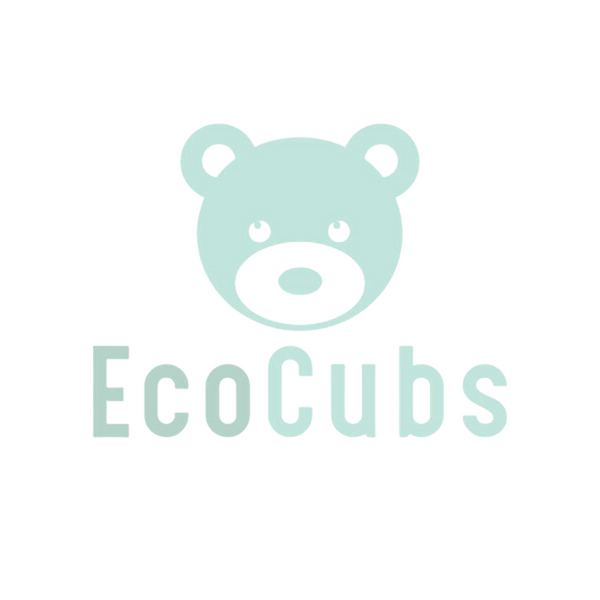
Are BPA-Free Plates Safe?
What Households Need to Know About BPA-Free Plates
If you’re a parent looking to make healthier choices for your family (like us), you’ve probably noticed the labels for “BPA-free” on most plastics these days. From Tupperware and drink bottles to kids dinnerware and utensils- but what do those labels actually mean and are "bpa-free" plates actually safe?
At EcoCubs, we simplify the research so you can make informed choices. Here’s a brief look at BPA, what ‘BPA-free’ really means, and how it impacts your home.
What is BPA?
BPA, or Bisphenol A, is a chemical that has been widely used in plastics and food packaging for decades. You might have seen it in water bottles, baby bottles, and plastic containers. The main concern with BPA is that it can mimic estrogen, a key hormone in the body, which may disrupt normal hormone function.

Research has linked BPA exposure to several health issues, especially in children:
• Hormonal Disruption: BPA can interfere with growth and development.
• Metabolic Issues: Some studies suggest links to obesity, diabetes, and insulin resistance.
• Neurological Effects: Exposure may impact brain development and behavior.
• Reproductive Concerns: Early-life exposure could affect reproductive health later on.
While BPA is not completely outlawed, its use is restricted in certain products in many countries, especially those designed for babies and young children. In Australia: BPA is banned in baby bottles, but still allowed in other food containers and plastics.
The BPA-Free Label: What It Doesn't Mean
When you see “BPA-free” on a plate, bottle, or container, it means the product does not contain Bisphenol A (BPA), the chemical that can interfere with hormones. However, it’s important to know what the label doesn’t tell you:
1. It doesn’t guarantee safety.
2. It doesn’t cover all harmful chemicals.
3. It doesn’t mean it’s suitable for families, especially for young kids.

The Remaining Health Risks of BPA-Free Plastic Plates
Even without BPA, many plastics can still leach potentially harmful chemicals into food, especially when exposed to heat, scratching, or long-term use. Research has linked several of these chemicals to health concerns:
• Hormonal Disruption: Chemicals such as BPS and BPF, often used as BPA substitutes, can mimic oestrogen and interfere with hormone systems, potentially affecting growth and development in children.
• Metabolic Issues: Exposure to certain plastic additives, including phthalates, has been associated with increased risks of obesity, insulin resistance, and diabetes.
• Neurological Effects: Compounds like styrene, found in polystyrene plastics, and other plastic-related chemicals may impact brain development, potentially influencing cognition and behaviour.
• Kidney Concerns: Melamine, used in some dinnerware, can leach under high heat, which in extreme cases may contribute to kidney issues.
• Microplastics: Over time, plastics can release tiny microplastic particles into food. Emerging research suggests these may contribute to inflammation and endocrine disruption.
(If you want to look in to more information about plastic-free plates as a whole, check out our previous post Why We Stopped Using Plastic Kids Plates).

Safer Alternatives to Plastic Plates
We've done an entire blog post on this before, so it you want to get in to the nitty gritty of it, you can read all about it in Kids Dinnerware Made Simple: What to Look For & What to Avoid. As a quick round-up however, and given the potential risks associated with plastic dinnerware, consider these safer alternatives:
• Stainless Steel Plates and Bowls: Durable, non-toxic, and resistant to leaching. Ideal for both children and adults.
• Plant-based Bamboo Dinnerware: A safe option that's also convenient, its free from in harmful binders and coatings.
• Glass: Non-reactive and free from harmful chemicals. Ensure it’s tempered for safety.
• Silicone: Flexible and heat-resistant. Look for food-grade, BPA-free silicone products.
When choosing alternatives, always check for certifications and read the fine print for any additives or chemicals.


Our Final Thoughts on Whether BPA-Free Plates are Safe
While “BPA-free” labels may offer some reassurance, they don’t guarantee a product is free from all harmful chemicals. As a parent, it’s essential to stay informed and choose dinnerware that prioritizes safety. Opting for materials like our stainless steel or plant-based bamboo dinnerware helps to ensure that you not only have truly BPA-free plates but a whole range of tableware that is safe for the planet and your little bears.



 https://admin.shopify.com/store/ecocubs/pages/47942533252
https://admin.shopify.com/store/ecocubs/pages/47942533252